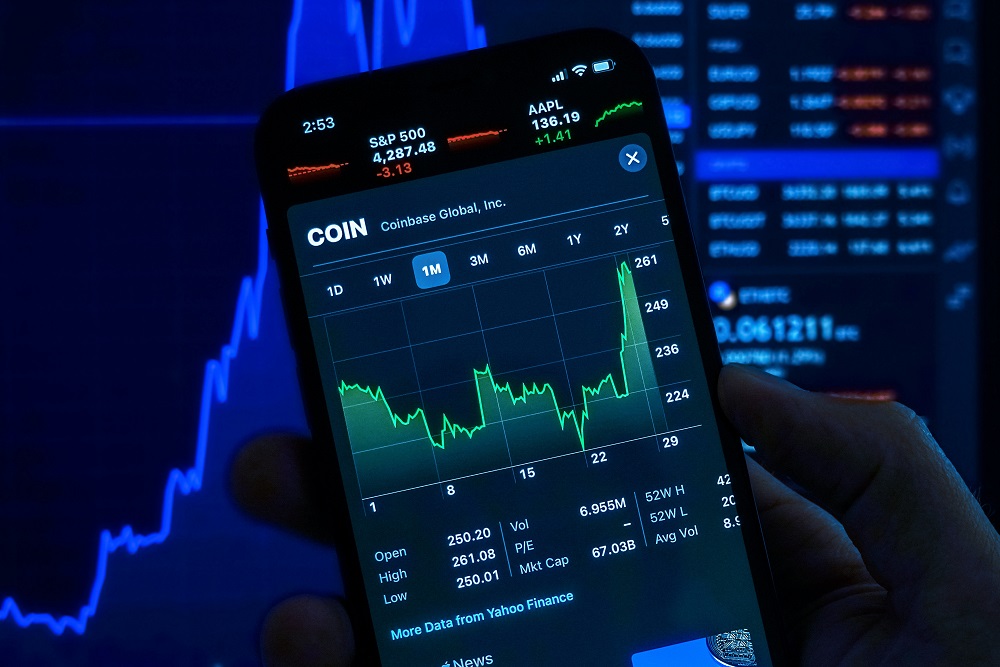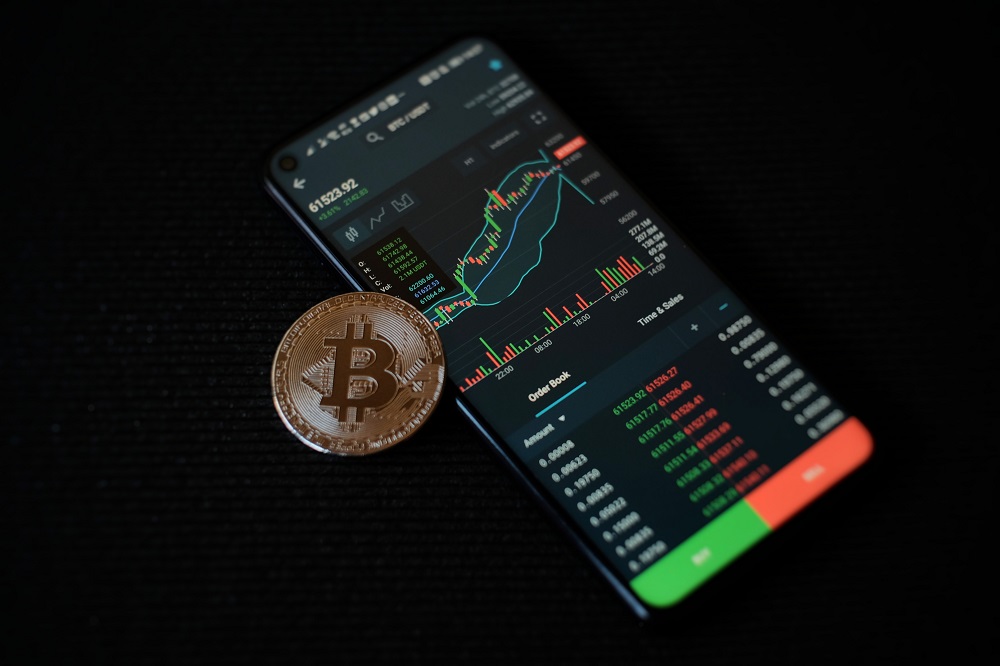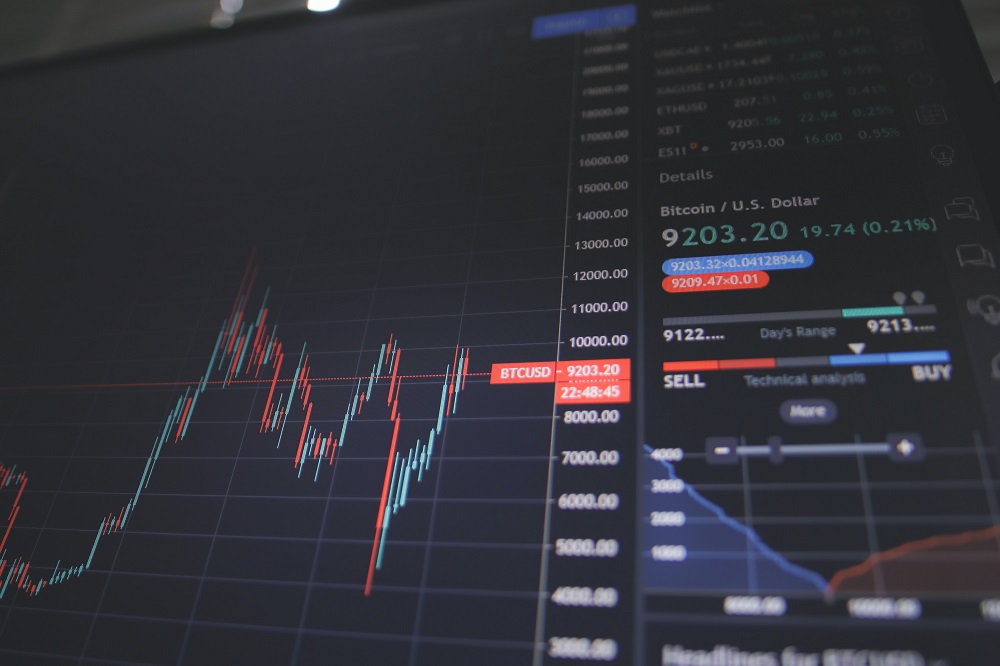While Bitcoin (BTC +2.8%) crashed, it still has a way to go. The Nasdaq mid-crash is due to the Fed tightening its policies. The tightening trajectory of the Fed is adding to the mounting pressures on the stock market. While the bitcoin might zoom, it will take something remarkable to go awry to pivot this dump around.
Is the fall in stocks and crypto inevitable, or will the stocks or crypto experience a rising surge? With entrepreneurs singing the praises of the genius bitcoins, the doom loop is leading to an onset of inflation. When the money flows in reverse, the same organizations and people rubbish the prices of their projects, thus causing deflation to kickstart.
With this call on the bear market crash, where is the bottom?
The phrase 'doom loop' is expected to induce a nervous eye twitch for almost all bank shareholders across the globe. Some investors are preparing to get uncomfortably familiar with this idea.

So, what is a doom loop?
When bond yields rise, their prices drop, leading to a loss for the owners if they mark them to market. For banks, these losses equal their capital base, the foundation of their balance sheet. Weak government finances often lead investors to sell their bonds, which often the local banks own in spades.
The tumbled bond prices and local banks suffering heavy losses increases the risk where they might be required to be bailed out. This imposes a further strain on government finances, making their debt riskier and pushing their yields higher. This leads to the onset of a vicious circle.
Read more: Thinking of Crypto Investments? Watch out for the Ten Common Mistakes
How will this doom loop impact the global markets?
There is a fair chance that more pain is yet to come because the knock to bank capital ratios is real.
JP Morgan reported that it suffered about $7.4 billion on the $313 billion of Treasuries' first-quarter losses and other bonds in its available for sale portfolio.

These market plunges lead to investors losing a fair chunk of their regulatory capital. But these unrealized accounting losses exist only on paper. They still cut into the bank’s capital and the book value it reports to its shareholders.
Market values matter as they reflect what the bonds will likely fetch if they are sold to refund depositors.
With the banks having no intention of selling, keep these bonds until they are repaid in full, and the paper losses evaporate. Considering the looming doom loop, the road over the next couple of years is expected to be bumpy for bank capital. The rising interest rate and inflation can lead to higher expectations of where interest rates and bond yields will end up.
The crypto industry, on the contrary, has not been immune to market moves. It is not as insulated from the market as some of its investors believe. Crypto investors tend to own stocks, and this indicates that even if the asset class is fundamentally unlinked to stocks, it is still linked through investor confidence in the future. This rising inflation risk is putting most asset classes, other than cash, under pressure.
Read more: Russia-Ukraine Crisis; Global Stocks Plunge; Inflation Risk Looms; What's Happening?
The Vicious Circle
The fears on Wall Street regarding the imminent recession threatening the investors and stakeholders have now become a self-fulfilling prophecy.
The plunging stock prices, including the S&P 500 suffering the worst during December, proved to be a serious blow to many consumers and CEOs alike.

The future costs for several banks depend on the maturities in their stock portfolios. But banks can defend themselves against these losses in a couple of ways. Banks may have to sit out on the longer-term yields to further rise as the same increase in yield causes a greater loss in value for a longer-term bond. Higher interest rates are exemplary for banks as they empower them to reinvest their money from maturing bonds and loans into debt that pays a higher rate. In this race, many tech organizations, especially consumer product companies, got over-valued on the venture side while others lost their valuations.
This waning confidence also threatened households and businesses into delaying their spending, causing a major challenge for the economy.
The last two years have been quite exhilarating for many investors.
While the stock market plunge at the outset of the Covid-19 pandemic was heart-wrenching for many, it has been a smooth run. The S&P 500 climbed by 16 % in 2020 and almost 27 % in 2021. Hordes of investors rushed into trading, fetching meme stocks like GameStop and AMC and relishing the perks of a broad-based bull market. While several U.S. banks are not caught in this full-scale doom loop, the prospects for cash payouts to investors this year do look less rosy.
Some plunged into cryptocurrencies like bitcoin, which traded above $60,000 per coin in the last fall. Tech players, including Peloton, Netflix, and Amazon, placed pretty sure bets for growth. The circumstances made it a little easy to overlook that bull markets do not last forever and that the stock waters can sometimes get a little choppy.
The markets often take the stairs up and the elevator down. And currently, all the investors across the globe are on this descending elevator.

The Anxious Situation the Economy is in Right Now
There is no singular answer for why the markets are plunging, why stocks rise and fall, or why investor sentiment changes every day. But the best explanation for the current situation is that there are a lot of grounds for investors to be freaked out. They are as follows-
Inflation is a big problem for the United States as well as the globe. The US inflation rate is near its highest level in 40 years. The Consumer Price Index measures what consumers have to pay for their goods and services, which was up by 8.3 % from the previous year and 0.3 % for the month.
With the Federal Reserve beginning to raise the interest rates, the market will soon begin to experience a reduction in its balance sheet to combat inflation and to get prices back under control. Those measures may be necessary one of the reasons behind making Wall Street nervous.
The other uncertainty plaguing the investor sentiment is the ongoing Russia-Ukraine war. This ongoing tension holds the potential to exacerbate inflation, supply chain issues, and oil price fluctuations, thereby contributing to the overall sense of unrest.
The slowed growth in China and concerns about the new Covid outbreaks are also contributing to the anxieties.
Read more: NFTs: The Future of Payment and Loyalty Programs

Things are Probably not Going to be Bad Forever
With the current market meltdown, it is natural for investors and shareholders to feel panicky about their financial future.
Historically, over the course of time, the stock market has ascended, and experts believe that this is going to eventually happen. Stocks that are trading lower than they have in the past signify the gradual fall of assets that many investors initially had an eye on. The current doom does not suggest that investors need to make a lot of changes, but it is time for them to move around their assets a little bit.
If your portfolio has already been rotating away from riskier investments, like stocks, and into something less volatile, then you might emerge unscathed from the looming fall.
In such situations, it is critical to remember that market declines are common. That does not signify that, over time, markets will not recover.
The bigger picture to stress is- Investing is a long game that one should be able to win.
With life getting back to a more normal state compared to during the pandemic, and people going back to living in the real world and relying a little less on the internet, the market is also recovering. While the COVID-19 impact was unfathomable, a slow but steady-paced recovery is expected in the coming years.
With a presence in New York, San Francisco, Austin, Seattle, Toronto, London, Zurich, Pune, Bengaluru, and Hyderabad, SG Analytics, a pioneer in Research and Analytics, offers tailor-made services to enterprises worldwide.
A market leader in Market Research Services, SG Analytics enables organizations to achieve actionable insights into products, technology, customers, competition, and the marketplace to make insight-driven decisions. Contact us today if you are an enterprise looking to make critical data-driven decisions to prompt accelerated growth and breakthrough performance.

